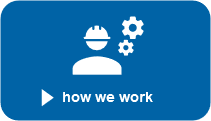In building our physical and social worlds, we build (or rather, we massively reconfigure) our minds and our capacities of thought and reason.
Clark, A. (2008). Supersizing the mind. Embodiment, action, and cognitive extension.
Oxford, New York: Oxford University Press.
The focus of the OCKO research group revolves around learning, knowledge creation, innovation, creativity, and change/transformation in educational, research, and organizational/work settings.
We view these settings (e.g., universities, companies) as socio-epistemic systems/organizations that are capable of creating knowledge (i.e., knowing organizations). We assume that — by employing a variety of different methods and approaches — the relevant structures, processes, and eco-systems of these organizations can be identified, activated, changed, and intentionally designed (i.e., through organizing cognition) in order to support and enable such processes of knowledge creation, innovation, and learning. Our approach is based on recent frameworks in cognitive science, generally referred to as 4E/4EA (i.e., embodied, embedded, extended, enactive & affective) approaches to cognition, organization and innovation studies, human-technology relationships, the concept of cognitive institutions (i.e., organizations as socially extended cognitive systems), as well as studies in the field of futures literacy.
We are a diverse team of researchers with different disciplinary backgrounds and work experiences in both academia and the private sector, who — despite their different research interests — have a common focus on above mentioned cognitive and organizational/social knowledge processes. The name OCKO is meant to reflect and accommodate our broad range of interests and backgrounds, as well as to invite others who share them and want to cooperate with our group.







